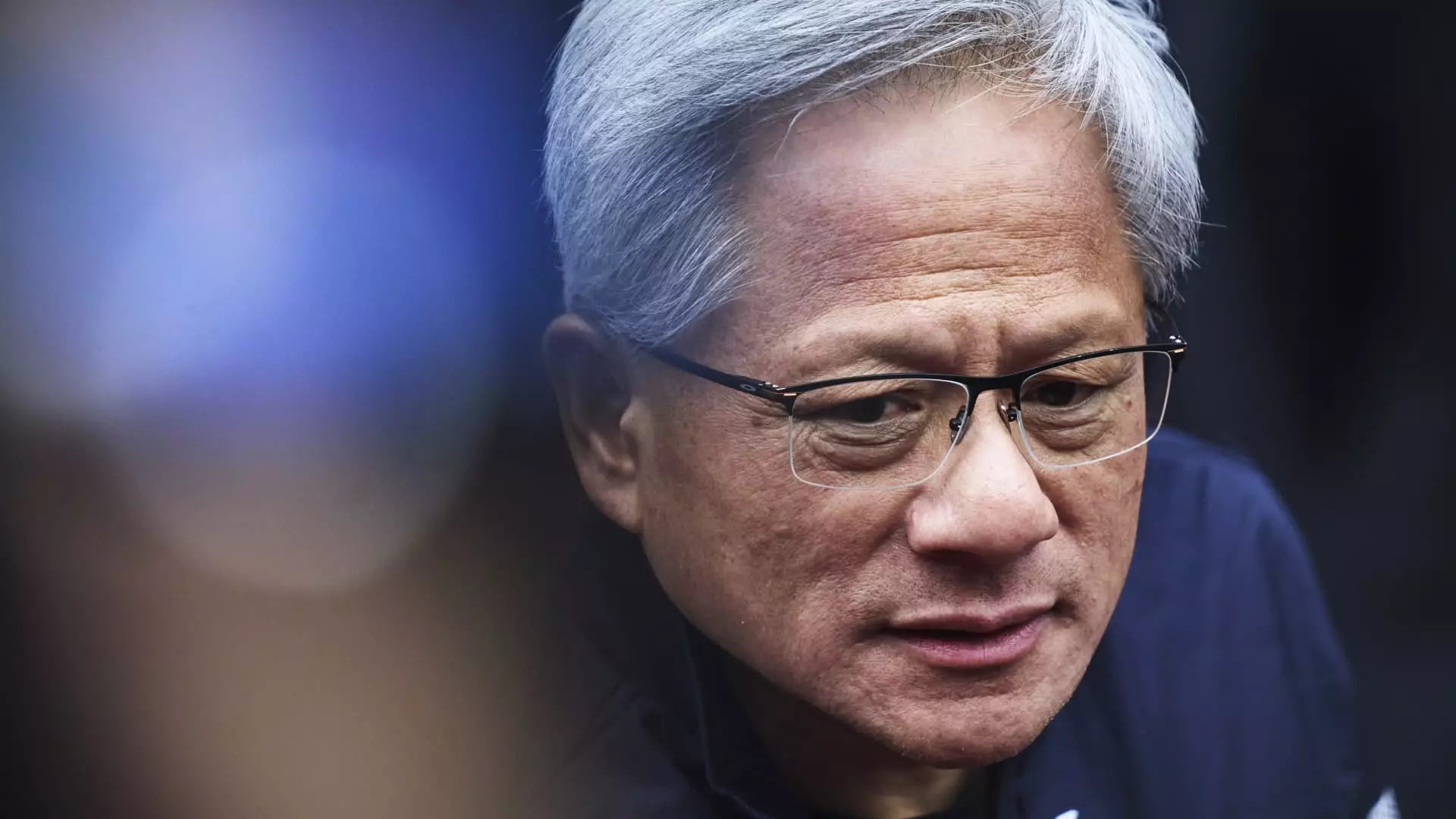In a noteworthy event in the intersection of technology and governance, Nvidia’s CEO Jensen Huang recently made headlines by arriving in Washington D.C. for a pivotal meeting with President Donald Trump. Their discussion is poised to focus on the critical topic of U.S. artificial intelligence policy, shedding light on the complex interplay between corporate interests and national strategy in an era dominated by rapid technological advancements.
As artificial intelligence continues to advance at an unprecedented pace, the necessity for coherent and forward-thinking policy frameworks becomes increasingly vital. The dialogue between Huang and Trump will provide insight into how the U.S. plans to regulate, harness, and promote innovations in AI while simultaneously addressing national security concerns. It’s crucial for industry leaders like Huang to align their corporate strategies with governmental policies to ensure sustained growth and competitive advantage in the global technology landscape.
AI holds the potential to revolutionize various sectors, from healthcare to finance, and as such, it garners significant governmental attention. The implications of failing to establish clear AI policies could be detrimental—not only to national interests but also to companies like Nvidia that are pushing the envelope of what is technologically possible. Thus, the outcome of this meeting could have far-reaching consequences, influencing the trajectory of both U.S. technological advancement and Nvidia’s market position.
Central to the anticipated conversation is the geopolitical landscape concerning the competition with China, particularly focusing on DeepSeek, a Chinese tech entity. This aspect of the discussion underscores the dual nature of technology as both a driver of economic growth and a potential source of international tension. The barriers currently in place that restrict Nvidia’s advanced chips from being exported to specific countries, including China and Russia, could stifle innovation and competitiveness, representing a bottleneck for technological progress.
The discussion concerning the U.S. chip restrictions on China reflects broader concerns about technological sovereignty and national security. The Biden administration’s diffusion rule imposes stringent limitations on chip sales overseas, which has elicited strong responses from industry leaders like Huang and his counterparts at companies such as AMD. Such regulations could inhibit the global reach of U.S. innovators and hinder their operational flexibility, demanding urgent attention from policymakers.
In addition to discussing regulatory challenges, Huang and Trump are expected to strategize about bolstering U.S. chip production capabilities. Given the increasing reliance on foreign manufacturing, particularly in Taiwan, the need for domestic production becomes pressing. The ongoing revamping of the CHIPS Act and potential financial incentives could foster a more resilient supply chain while mitigating risks associated with geopolitical tensions.
By reinforcing domestic chip manufacturing, the U.S. can not only secure its technological assets but also stimulate job creation within its borders. This approach could serve to enhance national economic stability and competitiveness, offering a win-win situation for policymakers and industry leaders alike. Huang’s engagement in this conversation signifies Nvidia’s recognition of the monumental shift needed in production paradigms to adapt to changing market realities.
Navigating Corporate and Government Relations
The meeting between Huang and Trump also symbolizes a broader trend where technology giants are becoming increasingly influential in political realms. With other notable CEOs having previously engaged with Trump, the landscape is shifting where corporate leaders are now vital partners in the shaping of policy. The role of executives like Elon Musk, who has emerged as an advisor, further illustrates this merging of tech innovation and political advisory roles.
The implications of corporate involvement in policymaking raise pertinent questions about accountability, transparency, and the potential for undue influence. As technology becomes more engrained in everyday governance, striking a balance between corporate advocacy and public good will necessitate vigilant oversight.
As we stand on the brink of transformative shifts in technology and policy, the meeting between Jensen Huang and Donald Trump could serve as a touchstone for future collaborations between the tech industry and government. Understanding the stakes involved in AI policy, international relations, and domestic production could pave the way for more strategic, informed decision-making. The implications of their dialogue could resonate far beyond Washington, shaping the contours of global technology leadership for years to come.
In a rapidly evolving world, nurturing constructive and open lines of dialogue between influential tech leaders and policymakers will be crucial in shaping an innovative future that aligns with national interests.


Leave a Reply